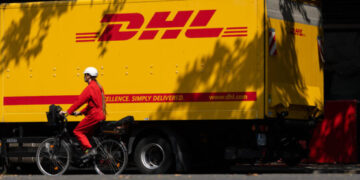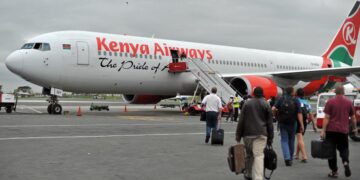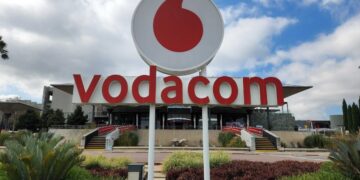It is not the rich, as Cape Town Mayor Geordin Hill-Lewis alleges, who are opposing the cleaning levy and linking fixed charges to property value in the city’s budget, but the middle class, says the Cape Town Collective Ratepayers’ Association (CTCRA).
The association represents 57 different ratepayer associations and has come out strongly in support of the South African Property Association’s (Sapoa) court application to have three fixed metro council tariffs reviewed and set aside. These are the city-wide cleaning levy and the fixed charges for water and sanitation.
The ratepayers are also accusing the DA, which governs in Cape Town, of double standards by fighting for the rule of law in other municipalities but proceeding with the implementation of what it believes are unlawful tariffs in Cape Town despite fierce opposition.
Sapoa’s announcement last week of its court action prompted a sharply worded press release by Hill-Lewis characterising the litigation as “an attempt” by Sapoa members “to stop Cape Town’s pro-poor budget to protect their own vested interests and put their profits ahead of the people of Cape Town”.
Sapoa represents commercial property owners, including owners of prominent malls such as the V&A Waterfront and Canal Walk as well as owners of residential and industrial properties. The majority of its members, it says, are smaller property owners with only a handful of properties each.
Hill-Lewis did not, in his statement, address the arguments raised by Sapoa in its court papers, stating that the charges are in fact an unlawful tax that the city council is implementing without the necessary authority.
Legal challenge seen as good news
CTCRA has now said in its statement that it is happy to hear about Sapoa’s court challenge and commends the organisation for the clear legal arguments in its founding affidavit.
“We have previously been advised that the linking of fixed charges for water and sewage to property values is unlawful in terms of the legislative framework governing municipal revenue and services.
“Furthermore, CTCRA agrees that the city-wide cleaning charge is also unlawful. It is not a service rendered to properties but is a general cost to running a city, no different to road maintenance, emergency services and dozens of other expenses.”
TCRA says it has been advised that there is no legislative foundation to bring it under a separate service charge, nor that it can be linked to property values. “Instead, the activities that fall under this category should be funded through property rates.”
Matter needs to be challenged
The organisation warns that if left unchallenged, “there is a realistic possibility that other municipalities in South Africa will adopt the City of Cape Town’s methods.”
It adds that it “is critical that the rule of law, fairness in service delivery, and constitutional accountability are upheld – not just for our city, but for the nation”.
The court case is pertinent not only to commercial property owners but also to residential property owners, it says.
“As a result, CTCRA is in contact with Sapoa to possibly come forward as ‘amicus curiae’ in this case.”
It says that as far as it knows the city has never communicated why it believes it is acting lawfully.
It says that having read the court application, it is clear that Sapoa is bringing this court case first and foremost to defend the rule of law, not because it is against the way in which the city wants to spend the budget.
“Regardless of CoCT’s rhetoric or even its intentions, it must act within the bounds of the law and this means the Constitution as well as laws governing local government revenue and services.”
It says the DA is holding municipalities to account in provinces and metros where it is not in power and is always quick to defend the rule of law – and even litigate to protect the rule of law.
“We do not understand the double standards that the DA is applying in this case.”
‘Not the wealthy’
CTCRA says the vast majority of ratepayers are opposed to the budget in general (rates increases way above inflation) but specifically to the city-wide cleaning charge itself and the fact that the water, sewage, and cleaning charges are linked to property value.
These people are not the wealthy but the middle class, says CTCRA.
“They live in suburbs like Rondebosch East, Mowbray, Pinelands, Goodwood, Parow, Diep River, Monte Vista and dozens of other middle-class suburbs.
“These are people who simply cannot afford a couple of hundred rand a month extra on their municipal [bills]. Some are retired, some are single-parent households, and some are simply families who barely earn enough for their monthly bills, even if they live in a R4 million house.
“Home values do not equal wealth and ability to pay. The mayor keeps saying that ‘those who can afford should pay more’, but it is not for the city to be the arbiter on who can pay and who can’t.”
Regarding some discounts included in a revised budget tabled late in June, CTCRA says the case is “about whether the city is acting within the law in raising these charges and we maintain that it is not”.
“The City of Cape Town cannot mitigate a charge that is not lawful.”
CTCRA says that like Sapoa and others, it has suggested alternative ways to the city to fund the expenditure increases for infrastructure and security, “including by increasing the efficiency of the municipality’s operations and introducing a tourist overnight tax”.
It accuses the city of ignoring these suggestions and instead “expecting ratepayers to cut their household expenditure to pay for higher municipal bills, while refusing to acknowledge its own inefficiencies”.



















![[Kenya] Digital credit provider Tala disbursed Sh240 billion in loans in eight years 19 [Kenya] Digital credit provider Tala disbursed Sh240 billion in loans in eight years](https://theafricanbusiness.com/wp-content/uploads/2023/02/TALA-APP-360x180.jpg)













